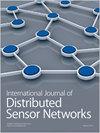智能家居环境感知智能控制系统
IF 2.5
4区 计算机科学
Q3 COMPUTER SCIENCE, INFORMATION SYSTEMS
International Journal of Distributed Sensor Networks
Pub Date : 2022-03-01
DOI:10.1177/15501329221082030
引用次数: 4
摘要
近年来,物联网智能硬件的快速发展增加了对设备智能控制的需求,主要体现在智能家居行业。研究了解决设备智能控制问题的框架。分析了现有上下文建模策略的优缺点。根据家庭上下文活动的特点,结合图数据库的设计原则,提出了一种新的基于对象和属性图的上下文建模方法,适用于资源有限的物联网场景。设计了智能家居交互的规则控制、模式控制和语音控制方法。利用推理机将上下文感知数据映射到执行系统自动控制的物联网控制服务,提出了一种基于上下文感知的物联网智能控制系统框架。考虑到用户的行为习惯,引入了用户偏好的概念,以提供更个性化的服务。仿真数据的性能测试表明,新的上下文建模方法比本体建模控制模式具有更快的系统响应时间。本文章由计算机程序翻译,如有差异,请以英文原文为准。
Intelligent control system of smart home for context awareness
In recent years, the rapid development of Internet of Things smart hardware has increased the demand for intelligent control of devices, mainly in the smart home industry. The framework to solve the problem of equipment intelligent control is studied. The advantages and disadvantages of existing context modeling strategies are analyzed. According to the characteristics of household context activities, combined with the design principles of graph databases, a new context modeling method based on object and attribute graph is proposed, which is suitable for Internet of Things scenarios with limited resources. Rule control, mode control, and voice control approaches of smart home interaction are designed. An inference engine is used to map the data of context awareness to the Internet of Things control services that executed automatic control of the system, and a framework of smart control system based on context awareness of Internet of Things is proposed. Considering the behavior habits of users, the concept of user preference is introduced to provide more personalized services. Performance tests with simulated data show that the new context modeling method has a faster system response time than the ontology modeling control mode.
求助全文
通过发布文献求助,成功后即可免费获取论文全文。
去求助
来源期刊
CiteScore
6.50
自引率
4.30%
发文量
94
审稿时长
3.6 months
期刊介绍:
International Journal of Distributed Sensor Networks (IJDSN) is a JCR ranked, peer-reviewed, open access journal that focuses on applied research and applications of sensor networks. The goal of this journal is to provide a forum for the publication of important research contributions in developing high performance computing solutions to problems arising from the complexities of these sensor network systems. Articles highlight advances in uses of sensor network systems for solving computational tasks in manufacturing, engineering and environmental systems.

 求助内容:
求助内容: 应助结果提醒方式:
应助结果提醒方式:


